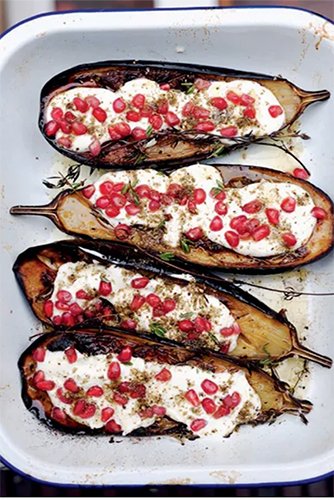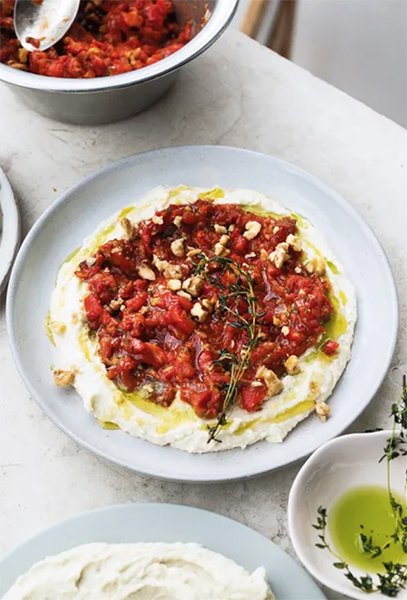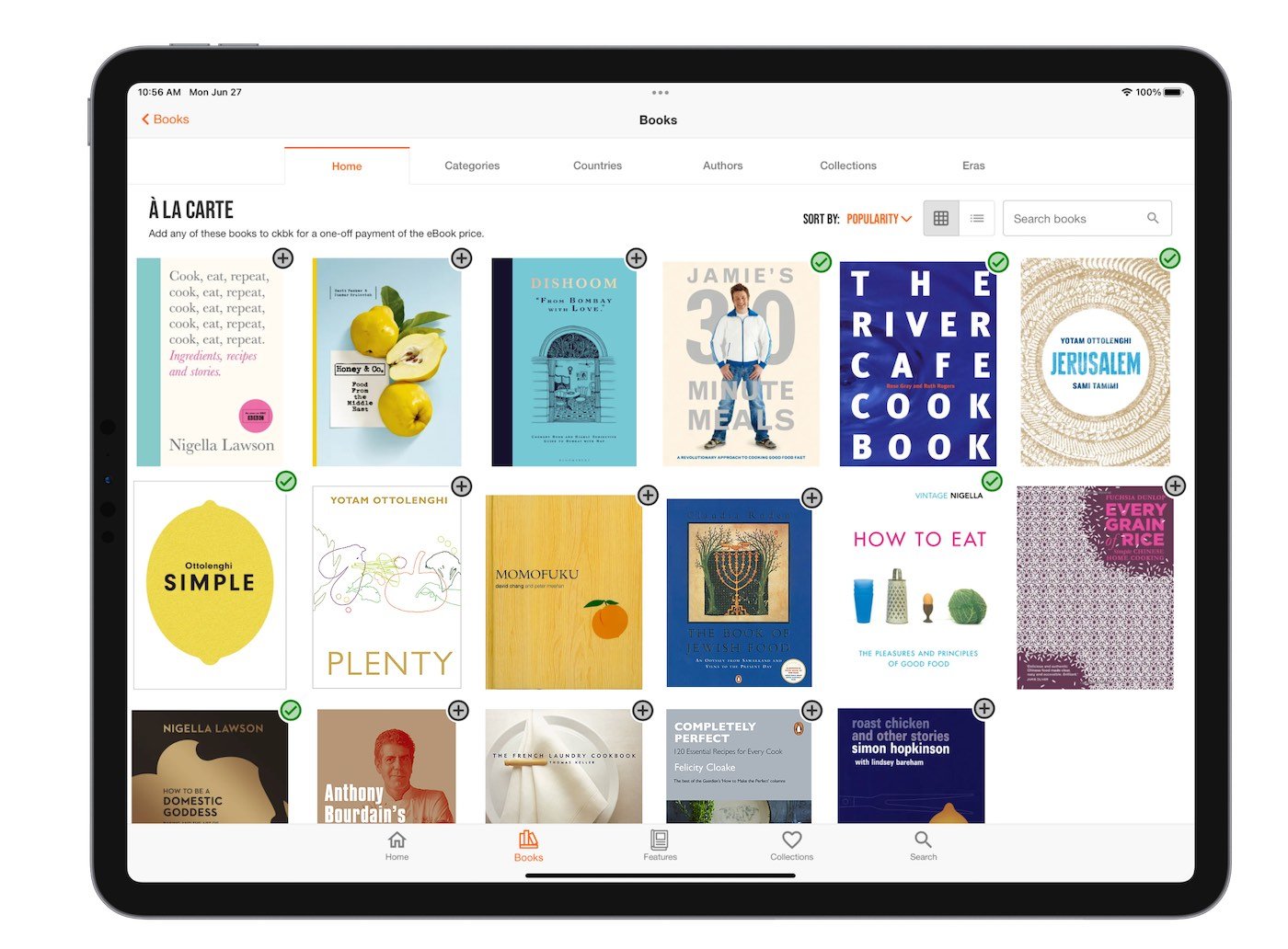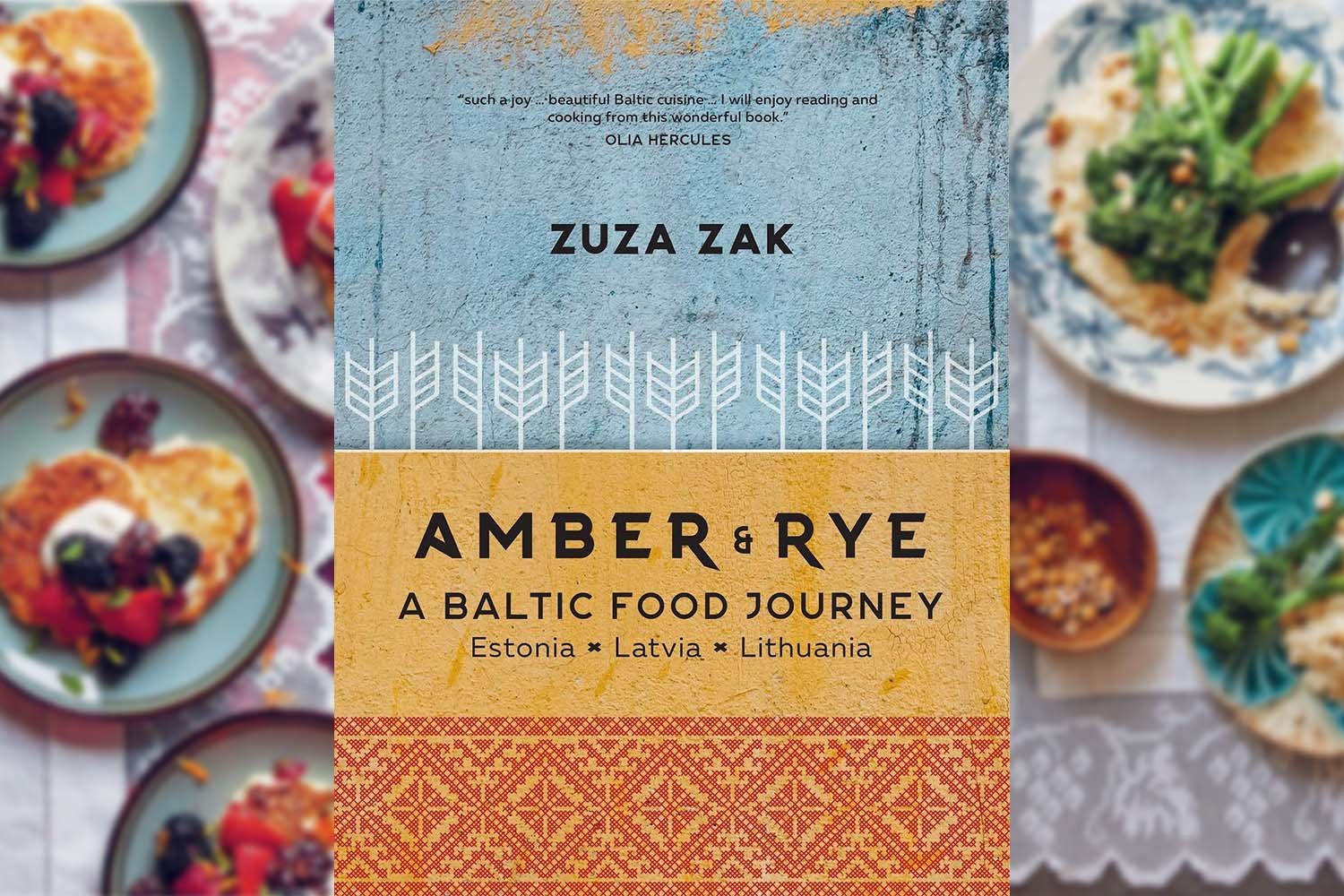Advertisement
Author profile: The legend that is Yotam Ottolenghi
21 July 2022 · Author Profile
Yotam Ottolenghi titles are now availabe as à la carte add-ons to ckbk
It is hard to overstate the influence that soft-spoken Israeli-British chef, restaurateur, and prolific cookbook author Yotam Ottolenghi has had on the world of food since his first cookbook was published in 2008.
Since then, his numerous titles have received international acclaim – and more recommendations than any other living chef via our 1000 Cookbooks project, which compiles the most essential English-language cookbooks of all time, as rated by prominent food writers, food professionals, and chefs. The book he co-authored with Sami Tamimi, Jerusalem, is ranked #10, while Plenty is ranked #11.
Three of the most well-loved Ottolenghi titles – Plenty, Jerusalem and Ottolenghi Simple are now available on ckbk via our new à la carte offering. To mark the occasion, we take stock of Ottolenghi’s incredible influence and get to the heart of what makes his cookbooks so universally appealing.
[Note for North American ckbk users – you will need to wait just a little longer before you can enjoy Ottolenghi’s cookbooks on ckbk – this initial launch covers the UK and Rest of World. Access for users in the US and Canada is planned for later in the year, but meanwhile check out the many other à la carte titles already available to you on ckbk.]
‘The Ottolenghi effect’
It could have been so different. Ottolenghi grew up in West Jerusalem to parents of Italian-Jewish and German-Jewish descent, completed a master’s degree in comparative literature at Tel Aviv University, and then went on to work as a copy editor and journalist. Against the advice of his family and friends, he moved to London to study at Le Cordon Bleu. In the UK, while working as a pastry chef, he met Palestinian chef Sami Tamimi, who became his business partner. Together they founded the first Ottolenghi restaurant in Notting Hill in 2002. It turned out that he was to get more pleasure from ingredients than from words.
Even though his restaurants are mainly London-based (there are now seven of them), his well-regarded ‘The New Vegetarian’ column for the UK Guardian's Weekend magazine and his string of best-selling titles in the UK, US, and Australia led the media to dub his influence on our eating habits as ‘the Ottolenghi effect.’ He has certainly helped make Middle Eastern cooking popular, but the effect is so much more than that.
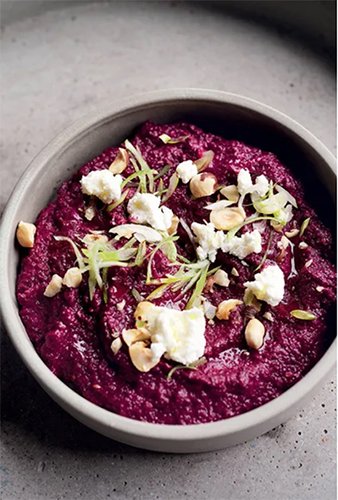
Puréed Beetroot with Yoghurt and Za’atar from Jerusalem.
His name – as in “that’s so Ottolenghi” – describes a style of cooking that champions veg, pulses and grains, with simple techniques, an intelligent use of ingredients, and a commitment to fresh produce. In Simple, he lists some of the ‘Ottolenghi ingredients’ – all of which have experienced a rise in shelf space in supermarkets in the past decade: sumac, za’atar, urfa chilli flakes, ground cardamom, pomegranate molasses, rose harissa, tahini, and preserved lemon, to name a few. Is it a coincidence that in 2013, a year after Jerusalem was published, Bart spices reported sales of the spice mix za’taar up by more than 800%?
Plenty (2010)
Plenty compiles recipes written for Ottolenghi’s ‘The New Vegetarian' column for the Guardian. In the book, he describes his initial hesitancy when he was approached to write a vegetarian column, essentially because he is not a vegetarian. He writes in the book about how some readers were shocked and disappointed to discover this: “A couple of angry letters to the editor stick in my mind [including] an incident where I suggested serving a salad with some barbecued lamb chops.” However, this is the very beauty of his style of cooking – all fresh vegetables and grains, herbs and spices, with meat often incidental.
Writing for The New York Times, Mark Bittman said: “Plenty... is among the most generous and luxurious non-meat cookbooks ever produced, one that instantly reminds us that you don’t need meat to produce over-the-top food.” Food writer Jill Dupleix, a contributor to the 1000 Cookbooks project, agrees. She says that Plenty features “sensible, logical, vegetable-driven recipes, beautifully and generously explained in a warm, inclusive voice, nothing pretentious or manipulative, leading to stunningly successful results by every level of home cook.”
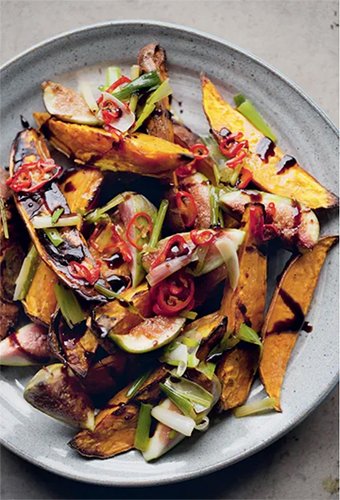
Roasted Sweet Potatoes and Fresh Figs from Jerusalem.
Jerusalem (2012)
Co-authored by Ottolenghi and Sami Tamimi, Jerusalem celebrates the culinary influences of the pair’s home city, and its Muslim, Jewish, Arab, Christian, and Armenian communities. Ottolenghi describes how he and Tamimi had parallel upbringings on two sides of the city – they were in fact born on the same year; Sami, a Palestinian from the Arab east side, and Ottolenghi, from the Jewish west.
Tamimi’s Falastin (co-authored by Tara Wigley) is also now on ckbk (another à la carte title) and continues the exploration of Palestinian culinary traditions. Another thing that united Tamimi and Ottolenghi was an initial bemusement about food in the UK. Tamimi has said: “Coming from the same place and having the same language gave us a bond, but we also shared an incomprehension of traditional English food: what's a mince pie?... and why do they call it a mince pie when it’s sweet?”
Food writer Sarah Chamberlain is a big fan of Jerusalem. She said: “Everything I’ve made from this has been delicious, from the weeknight-friendly (Chermoula Aubergines with Bulgur Salad) to the dinner-party showstoppers (Lamb Shawarma) to the sweet treats (the wonderful, wonderful Spice Cookies).”
TV presenter and food writer Rebecca Seal likens choosing your favorite Ottolenghi book to trying to choose between children. However, “this one perhaps inches ahead because (as the author of books which aspire to this style) I love cookbooks which are firmly rooted in the places that their recipes evolved in,” she says.
Chamberlain agrees: “If I were only allowed to have one Ottolenghi cookbook, it would be this one.”
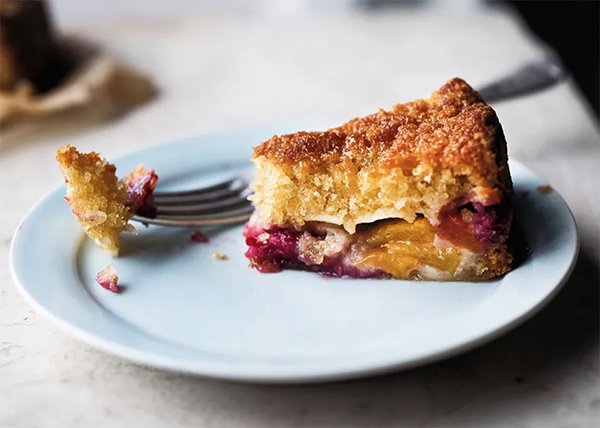
Hazelnut, Peach and Raspberry Cake from Simple.
Simple (2018)
With his reputation for unusual ingredients, simple is not what springs to mind when most people think of an Ottolenghi recipe, but mainly because of the variety of ingredients, rather than down to technique. However, Simple was about challenging that notion. The book (co-written with Tara Wigley) describes all its recipe dishes as SIMPLE in at least one of the following ways:
S – short on time: less than 30 minutes; I – 10 ingredients or less; M – make ahead; P – pantry; L – lazy; E – easier than you think.
This concept is clearly very Ottolenghi (that adjective again!) in spirit and flavor, but even more accessible than earlier works. Shortcuts – only when they are needed – such as leaving the skins on your peppers for Muhammara (a spicy Levantine dip made from red peppers and walnuts) make this a crowd-pleasing title, and just so, so Ottolenghi.
Plenty: Vibrant Vegetable Recipes from London’s Ottolenghi; Jerusalem: A Cookbook; and Ottolenghi Simple: A Cookbook are available now as add-ons to ckbk. These and other add-on titles from superstar authors can be found on ckbk’s new à la carte bookshelf.
Popular recipes from Yotam Ottolenghi’s books on ckbk
More from ckbk
Introducing à la carte
This major new feature allows top cookbooks from superstar authors to be added to ckbk for the e-book price
Author Profile
Author Eleanor Ford talks to ckbk about how she researched Fire Islands and The Nutmeg Trail.
Sign up for ckbk's weekly email newsletter
Advertisement



